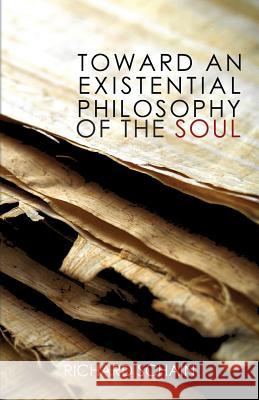Toward an Existential Philosophy of the Soul » książka
Toward an Existential Philosophy of the Soul
ISBN-13: 9781621375999 / Angielski / Miękka / 2014 / 126 str.
"Toward an Existential Philosophy of the Soul" defends the reality of the human soul. It is an existential work that presents the personal perspective of the writer. Some topics considered from historical viewpoints are the nature of the soul, the spectre of 'scientism, ' consciousness and the brain, creativity, death, and the mutual interrelationships of God and soul. The thesis is asserted that one's soul, considered to be the central feature of the human condition, exists within a different dimension of reality than does the physical brain with its millions of spiritless nerve cells. However, the influence of scientism has resulted in a denial of the reality of spiritual entities. The impact on society of this sea change from earlier historical attitudes has been enormous. Contemporary man has been losing his soul because contemporary monistic science will not recognize a metaphysical soul. Philosophers whose concepts have been significant for the writing of this work are discussed. The penultimate chapter considers the "death of God" and the connection of this thought to loss of belief in the existence of an interior self. Mystical experiences of God and intuitive consciousness of one's own soul are proposed to be related phenomena
"Toward an Existential Philosophy of the Soul" defends the reality of the human soul. It is an existential work that presents the personal perspective of the writer. Some topics considered from historical viewpoints are the nature of the soul, the spectre of scientism, consciousness and the brain, creativity, death, and the mutual interrelationships of God and soul. The thesis is asserted that ones soul, considered to be the central feature of the human condition, exists within a different dimension of reality than does the physical brain with its millions of spiritless nerve cells. However, the influence of scientism has resulted in a denial of the reality of spiritual entities. The impact on society of this sea change from earlier historical attitudes has been enormous. Contemporary man has been losing his soul because contemporary monistic science will not recognize a metaphysical soul. Philosophers whose concepts have been significant for the writing of this work are discussed. The penultimate chapter considers the "death of God" and the connection of this thought to loss of belief in the existence of an interior self. Mystical experiences of God and intuitive consciousness of ones own soul are proposed to be related phenomena.











